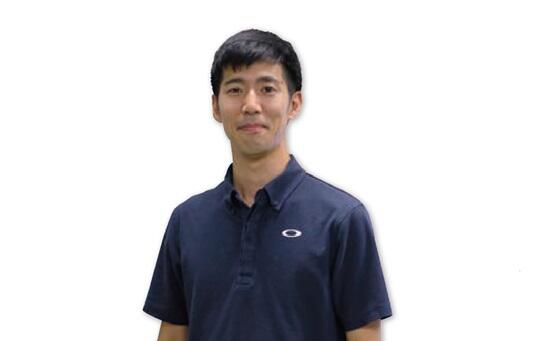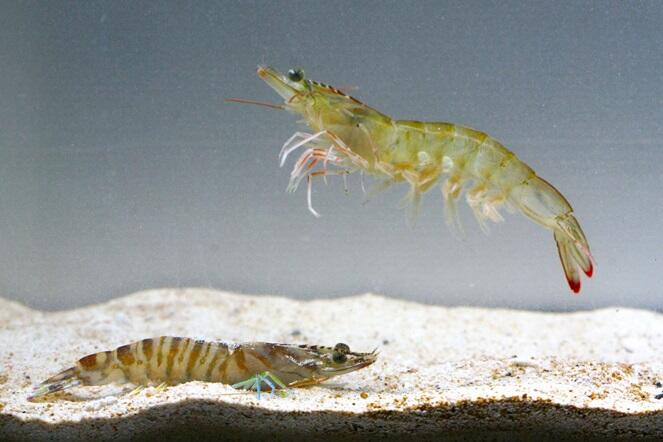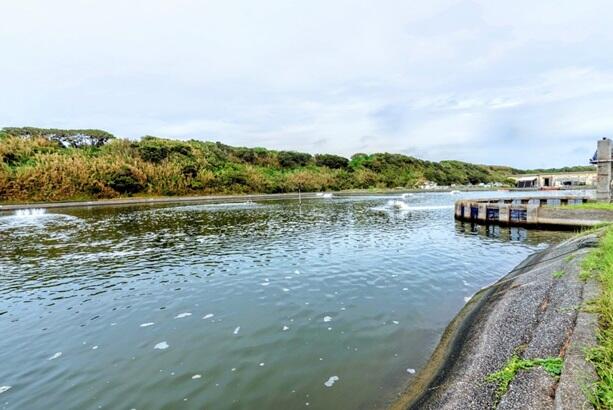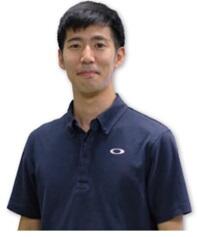
Associate Professor, Institute for Aquaculture Biotechnology, Tokyo University of Marine Science and Technology
Q1. Why did you choose to study shrimp?
A1. Because shrimp is a globally important marine product.
I used to fish and play in the river around my mother's parents' house often, and my first interest in biology came from these experiences. In junior high and high school, I was a member of the biology club and became fascinated with tropical fish keeping, which I started as a hobby. When deciding on a career path, I wanted to learn about fish, which I love, in a specialized way, so I enrolled in the Department of Marine Biological Resources at Tokyo University of Marine Science and Technology.
As I continued my studies at university, I realized how much the fisheries industry supports Japan's food supply. In order for humans to consume protein efficiently, it is important to make good use of marine products. I wanted to pursue the possibility of aquaculture as one way to do so.
I chose to specialize in shrimp not only because it was a subject of research of my supervisor, Professor Ikuo Hirono, but also because I learned that there were a very small number of shrimp researchers in Japan, even though it is the third largest aquaculture product in the world and is an important marine product traded globally. I was attracted to this niche yet very important field. The immune function of kuruma shrimp is still unclear in many aspects, and no one in the world has yet succeeded in culturing cells. I hope to elucidate these aspects and apply them to actual aquaculture farms.

Q2. Please tell us about your current research project.
A2. Gene expression analysis to prevent viral infection.
One of the challenges in shrimp farming today is the susceptibility to the spread of viral diseases. In fish, infection can be prevented with vaccines, but kuruma shrimp is an invertebrate and lacks acquired immunity, so their diseases are difficult to prevent with vaccines. It is necessary to study how immunity is regulated in kuruma shrimp to prevent death from infection. However, it is difficult to classify the hemocytes responsible for immunity just by looking at them under a microscope.
Therefore, I applied a technique called "comprehensive single-cell mRNA analysis" to kuruma shrimp and analyzed gene expression profiles in hemocytes of the shrimp artificially infected with a virus. Until now, it has been known that the number of hemocytes in virus-infected kuruma shrimp has been reduced. In this study, we found that "antimicrobial peptides" were reduced in the cell population expressing proteins to remove foreign substances.
This finding indicates that the prevention of viral infection requires a rearing environment and feed that increase antimicrobial peptides or prevent them from decreasing. Moving forward, I will investigate whether similar results can be obtained with shrimp other than kuruma shrimp and continue the immune function analysis in collaboration with researchers of shellfish and sea cucumbers.

Q3. Please give some advice to young researchers.
A3. Don't be picky. Have interests in a wide range of fields.
There are pros and cons to working in a niche field. It is fun that whatever you study will be humankind's first finding, but you will have difficulty because you can find few references and a limited number of researchers with whom you can have discussions. Since there are few guiding principles, I have always tried to do experiments myself and build up my experience.
I believe it is also important to learn a wide range of subjects outside your field of expertise, whether you like them or not. I wanted postdoctoral research experience in completely different fields from what I am doing now, so I joined the Precision Mechanics and Bioengineering laboratories. As it turned out, the skills I acquired then are very useful in my current research, and I also had opportunities to broaden my perspective as a researcher. I have also benefited from ACT-X as it allowed me to interact with researchers in various fields. I encourage all aspiring researchers to look at various fields, not just those you like or are good at. If you try to broaden your world, your expertise will deepen.

(Article: Kayo Murakami)

Profile
Keiichiro Koiwai
Associate Professor, Institute for Aquaculture Biotechnology, Tokyo University of Marine Science and Technology
Born in Tokyo, Japan. Completed the doctoral program at the Graduate School of Marine Science and Technology, Tokyo University of Marine Science and Technology, in 2019. Ph.D. (Marine Science). Assumed current position in 2024, after holding positions as a Project Assistant Professor at the Institute of Global Innovation Research at the Tokyo University of Agriculture and Technology and Assistant Professor at the Tokyo University of Marine Science and Technology. ACT-X researcher from 2021 to 2024.




